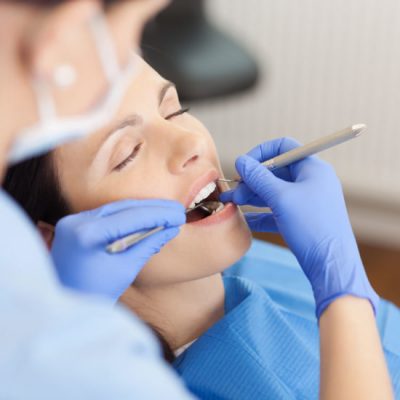Sedation Dentistry
At SD Dental Cleveland, we provide IV sedation for patients. IV (intravenous sedation) is very effective for any dental procedure it is suitable and extremely safe for most people.
What is intravenous sedation, and why is it advantageous?
Dental sedation through intravenous injection is a very safe and highly effective method that will make your appointment more pleasant, sleepy, and relaxing. Twilight anaesthesia, sleep dentistry, and twilight sedation are other names for it.
In order to make you feel comfortable, sleepy, and unconscious of your surroundings throughout the procedure—while still being able to breathe on your own, move, and respond to commands—a combination of intravenous anaesthetic, sedative, and pain-relieving medicines are given. Most people have no recollection of the operation. In most cases, IV sedation has little impact on memory before or after.
Patient’s often comment that the whole procedure has passed in only a few minutes when in reality it may have been several hours. Intravenous sedation also allows patients to avoid the risk, cost and time involved with having a general anaesthetic. It allows your dentist to care for you at their clinic, and is safer, allows you to recover quickly and has minimal side effects compared to undergoing a general anaesthetic.
Who can have IV sedation?
Intravenous sedation is beneficial for patients who:
- Have anxiety of fear/phobia or are nervous about dental procedures or avoid going to the dentist
- Have had traumatic or negative dental experiences in the past.
- Require complex, multiple extensive or long dental treatments.
- Dislike needles, drills, pain/discomfort, sights, sounds/noises, tastes or smells associated with their dental procedures.
- Require removal of wisdom teeth, teeth extractions, dental surgery/oral surgery, dental implants, root canal treatment, fillings, periodontal or gum treatments, crowns and bridges, full mouth restorations, bone grafts, All on 4, emergency procedures, and so forth.
- Have limited time and wish to undertake their dental procedures in one appointment instead of multiple appointments.
- Are uncomfortable with dental treatments.
- Have difficulty feelings numb with local anaesthetic injections.
- Have a strong gag reflex.
- Find in difficult to keep their mouth open or have jaw problems.
- Feel embarrassed about the condition of their teeth.
- Find it difficult to sit still in the dental chair.
- Are anxious, fearful or nervous about injections/needles or who have a low-pain threshold.


